Global Reset: A peek at Earth Week
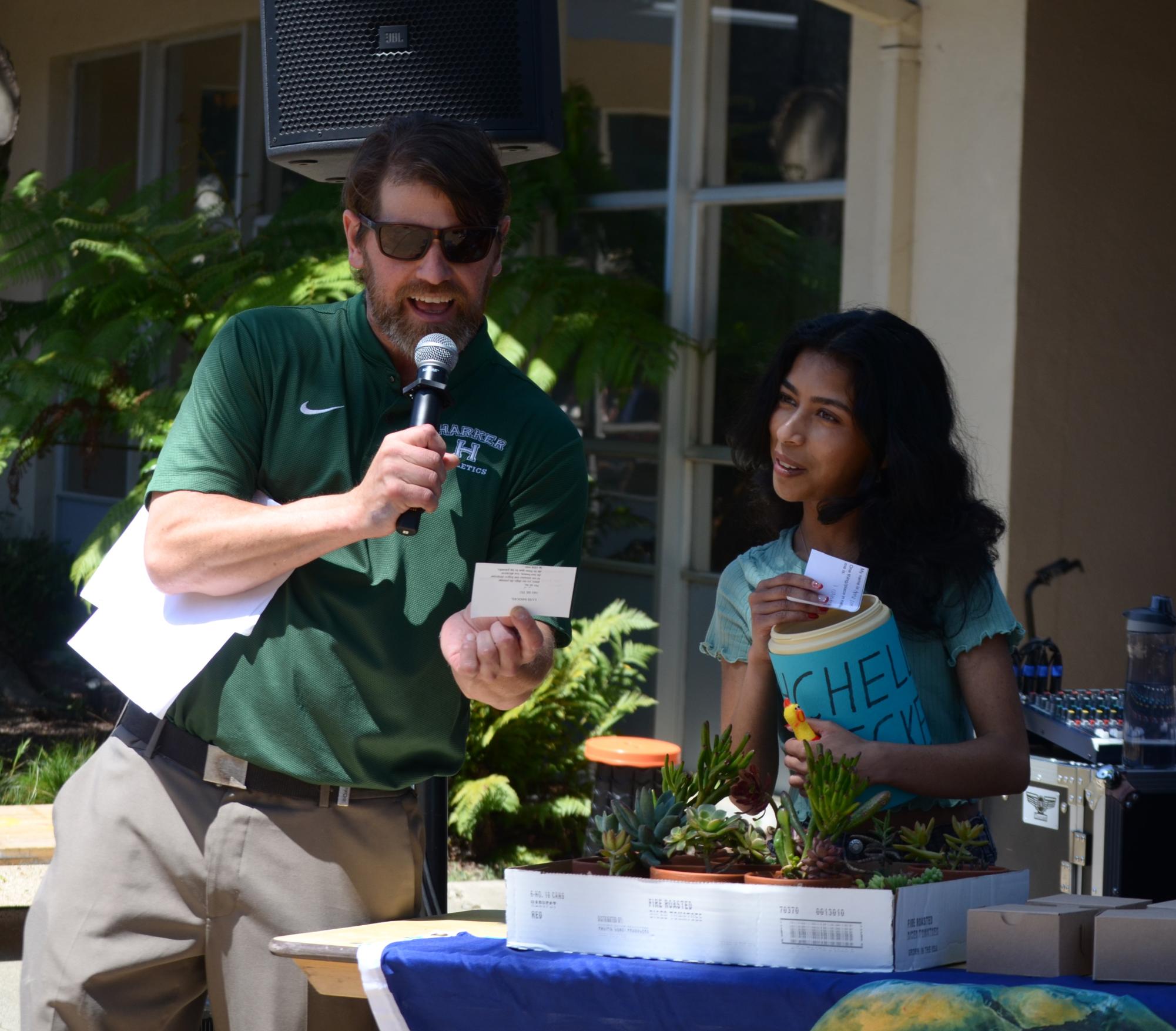
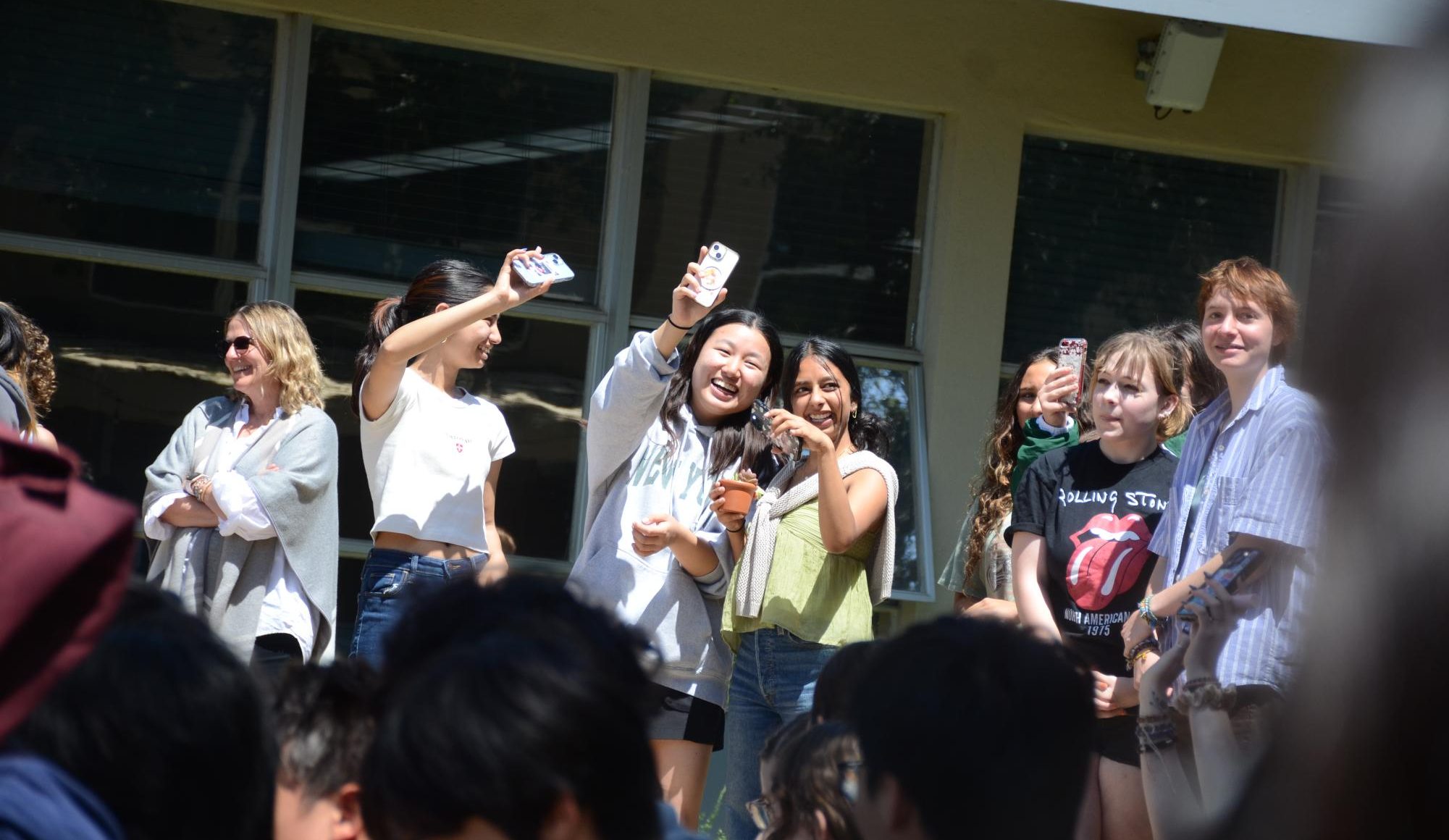
Earthchella, the annual event held in celebration of Earth Week, energized the Quad during the second half of long lunch on April 19. There were 10 acts in total, ranging from musical performances to song covers to K-pop dances.
Performances included unique musical acts featuring an aerophone, or an electronic saxophone, an acoustic storytime and dance covers of “Baggy Jeans” by K-pop group NCT U and “Easy” by Le Sserafim.
Chemistry teacher Andrew Irvine introduced each act and provided facts about the environment, such as the benefits of recycling, in between performances. During the event, Green Team also held a raffle, offering prizes like succulents.
Eric Dong (10), Timothy Deng (10), Rahul Sundaresan (10), Edis Mesic (12), Connor King (11), Ford Johnson (12), Arnav Swaroop (12), William Zhang (12) and Benjamin Xia (10) performed a cover of the jazz Cantina Band song from Star Wars arranged by William. Eric, who played the clarinet, reflected on the time he spent preparing for his performance with the rest of the group.
“We actually performed this in February for another concert,” Eric said. “Being able to perform was pretty fun. I enjoyed the actual preparation part of it because I got to talk to a lot of the clarinets in my section.”

Before the main event, Green Team set up environment and sustainability-themed booths for students to visit. Irvine also ate a beetle and dried tarantula in front of the crowd to shed light on food sustainability.
“Earthchella is a way to get people geared up and ready to attend other Earth Week events,” Irvine said. “It’s definitely our opportunity as a school culture and community to come together and make sustainability an ever-present part of our lives. Ultimately, I just want to bring it to the forefront of everyone’s mind and attention as we move into Earth Week.”
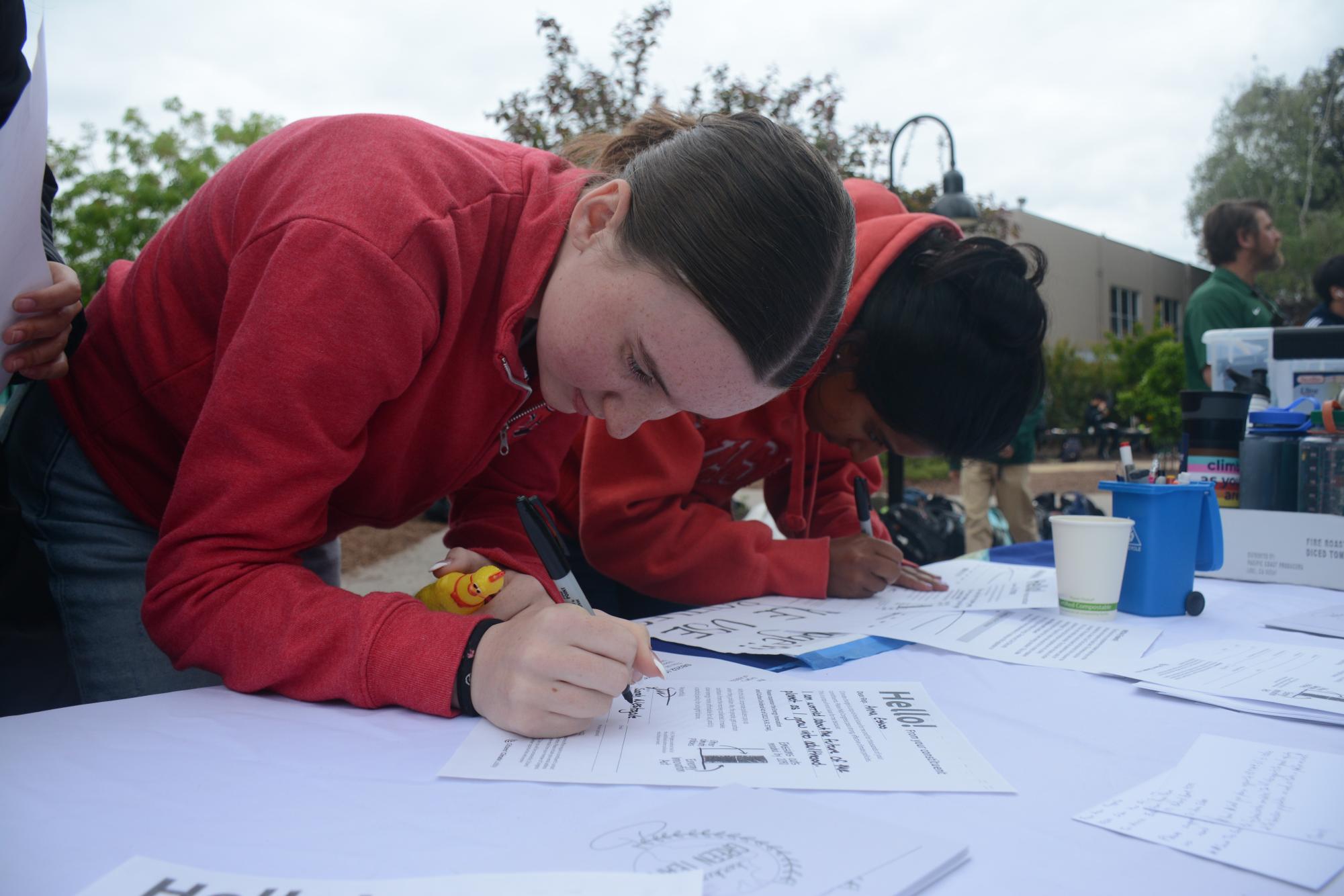
Green Team hosted an initiative called Adopt-A-Water-Bottle outside Manzanita Hall from April 21 to 23. Attendees could claim a reusable metal water bottle from the Lost and Found in an effort to reduce plastic waste.
Humans produce around 350 million metric tons of plastic waste per year. The U.S. alone landfills over 26 million tons of plastic annually. Because plastics take over 500 to 1000 years to decompose, they linger in the environment for long periods of time. 14 million tons of plastic eventually end up in the oceans, leeching into ecosystems and killing marine life. Metal water bottles are not only reusable but also much safer to drink from because they don’t shed harmful chemicals like Bisphenol A, which their plastic counterparts do.
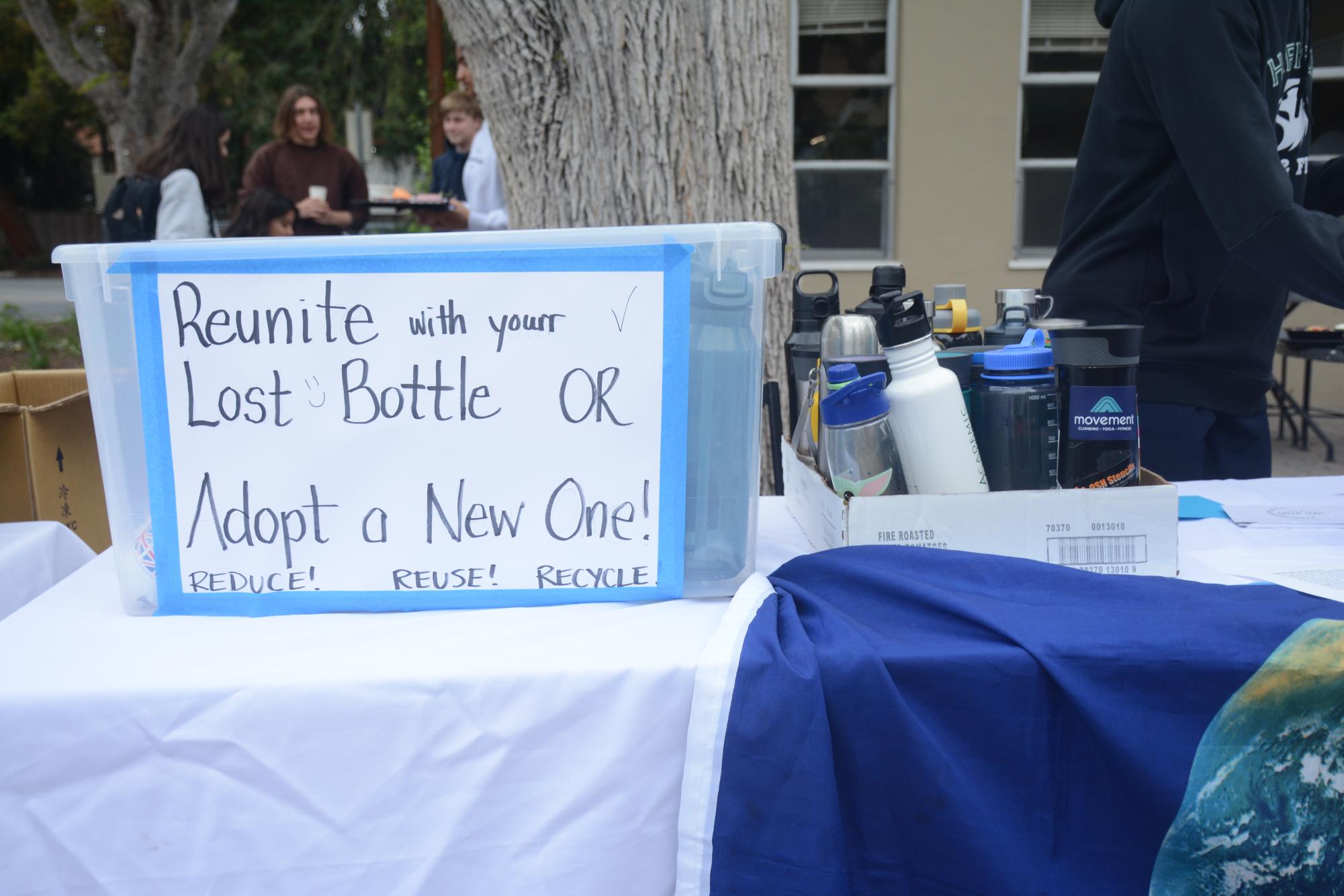
Green Team also organized a postcard writing event where attendees wrote letters to their local district representatives and lobbied for climate and environmental legislation. Green Team public relations officer Eric Zhang (11), who helped run the station, noted the importance of pushing climate initiatives.
“One of the main objectives is promoting a carbon tax and keeping big fossil fuel companies accountable for the amount of carbon dioxide and greenhouse gas emissions,” Eric said. “Part of it is also just getting the youth voice out.”
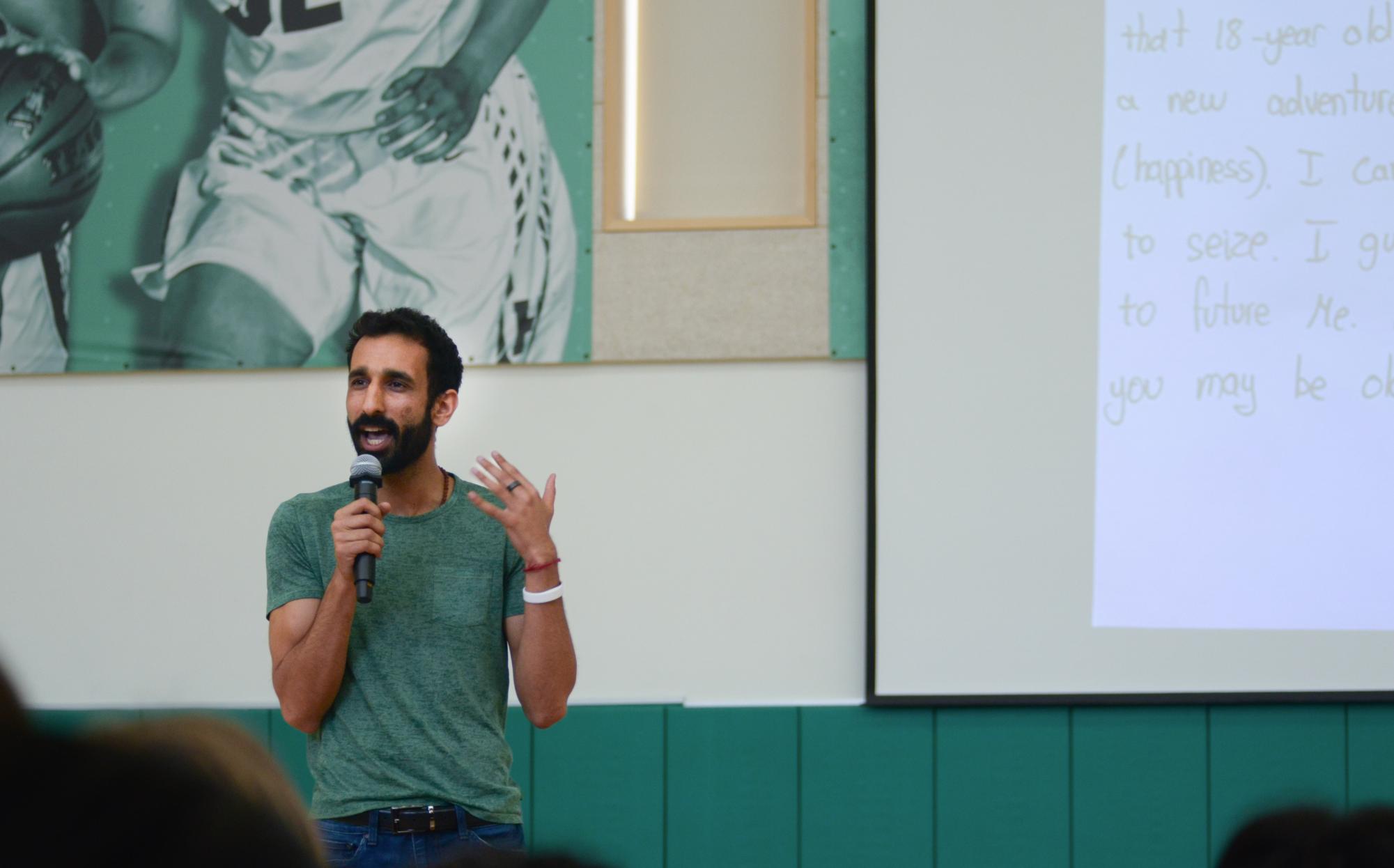
Green Team invited various speakers to discuss climate and environmental initiatives over the course of Earth Week, starting with a talk by alumni Simar Mangat (‘13) during the school meeting on April 19. Simar, an investor and entrepreneur focused on climate change initiatives, discussed the current state of our planet and how global warming affects oceans. At the end of his presentation, he led the audience through a meditative practice to calm the mind.
Middle school English teacher Marjorie Hazeltine delved into the causes of fast fashion and ways for individuals to shop sustainably on April 25. This was her third year giving the “Thrifting and Fast Fashion Workshop,” and she focused on shopping mindfully.
“Two questions to ask yourself are, ‘Where did this come from?’ and ‘Where will this go?’,” Hazeltine said. “A lot of times we’re out of sight, out of mind, and even now I do that with certain items, like with an old electric toothbrush I was going to throw away. Be thinking about who made these clothing and what their life is going to be afterward.”
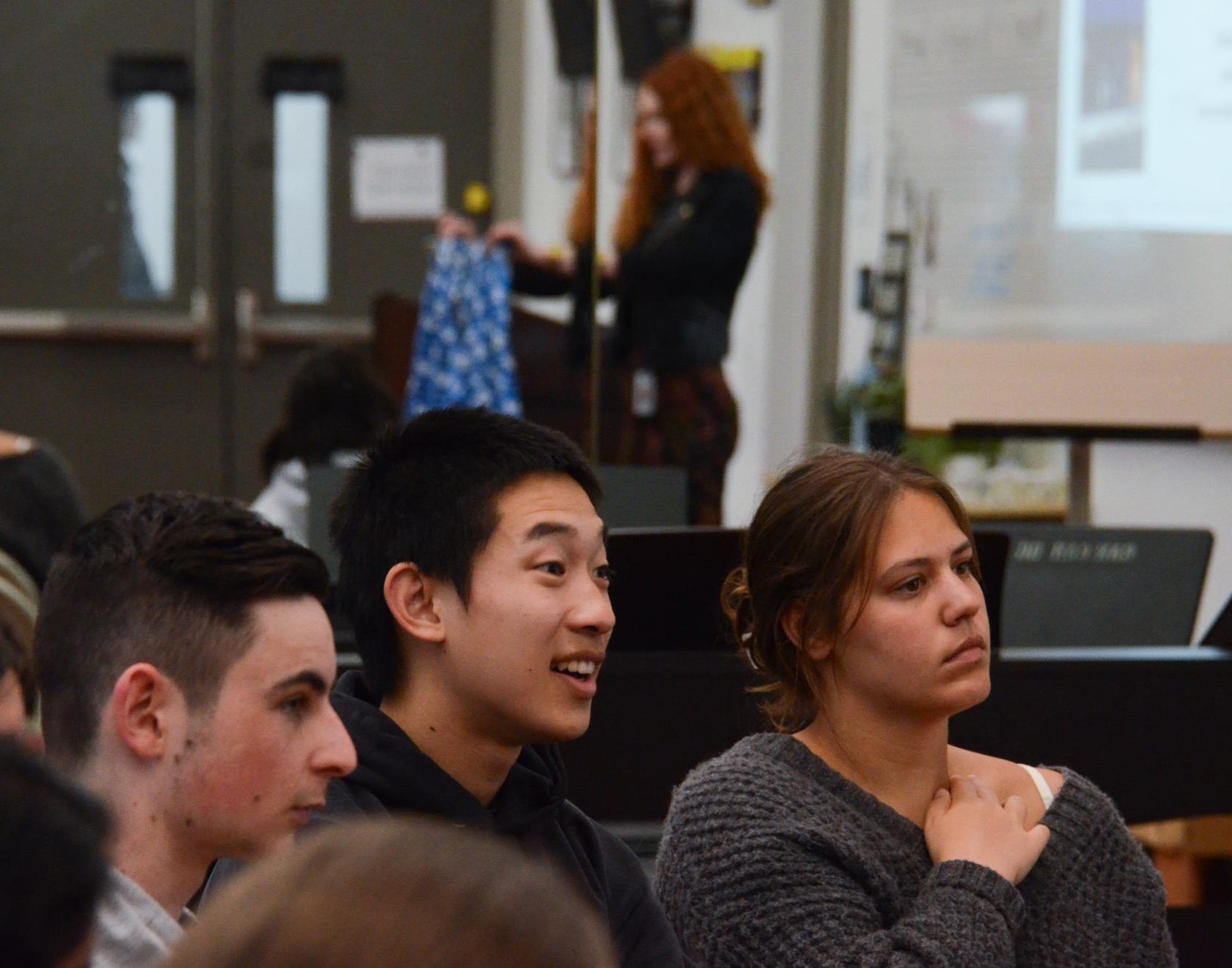
Hazeltine introduced attendees to local sustainability efforts like textile recycling bins and secondhand stores like Crossroads Trading. She also brought clothing from home for attendees to look through. Her workshop emphasized the importance of doing away with stigmas against previously worn clothing, whether through clothing swap parties or borrowing from friends.
“One of the messages in my presentation is to practice accepting gifts and used clothing from others,” Hazeltine said. “I wanted to have kids practice looking at an item and think, ‘Is that something I could use?’ or ‘Is that something I would like?’ and get excited about used clothing without any exchange of money.”
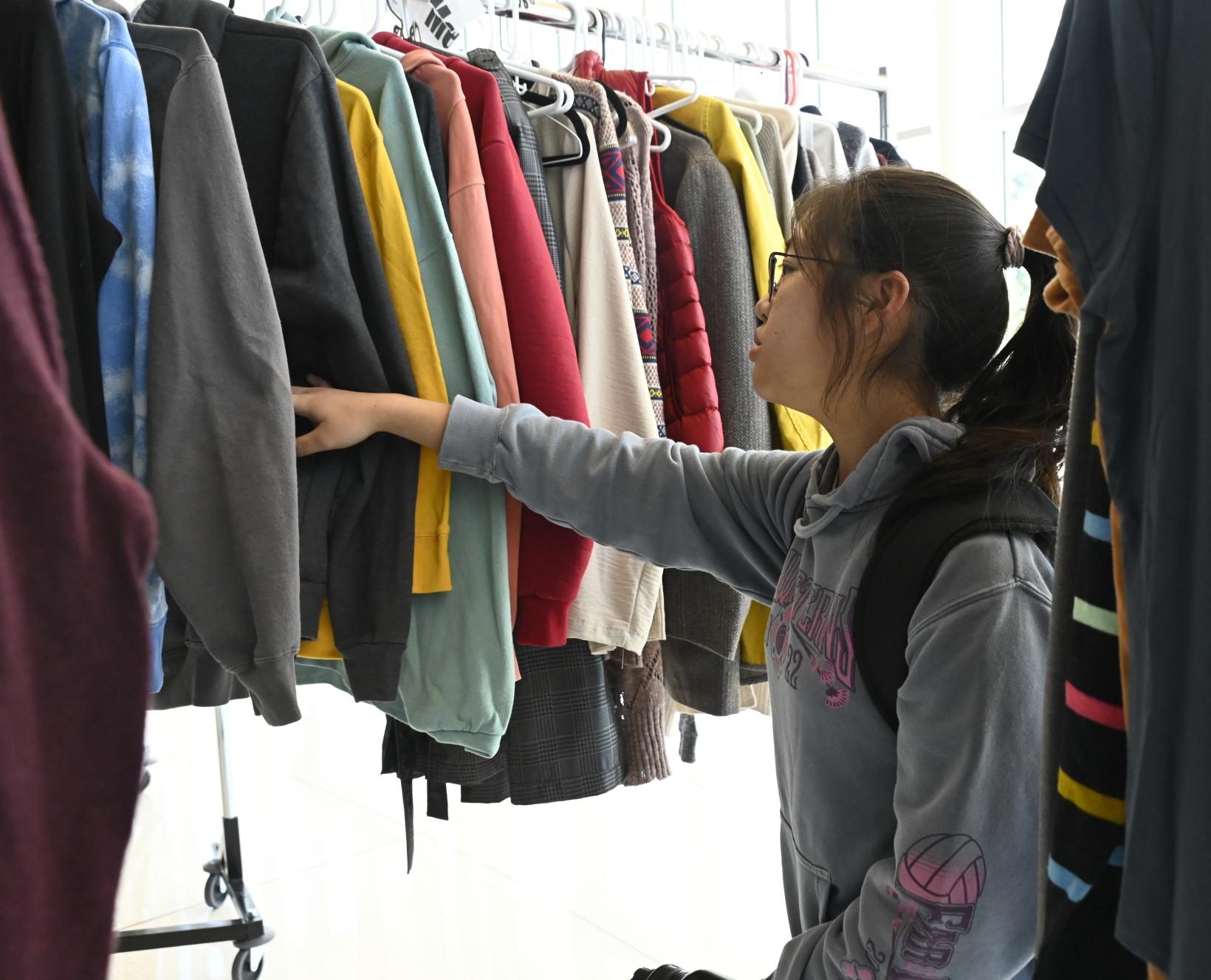
Key Club and Green Team organized the annual Clothing Swap which opened from Apr. 30 to May 2. Racks of sweaters, shifts, dresses and pants and tables of shoes and accessories filled the RPAC lobby. Clothing Swap visitor Demitri Ajlouny (10) went to look for baggier streetwear.
“I wanted to see what kind of clothes were here,” he said. “I also wanted to see if I should bring any of my old clothes to trade in.”
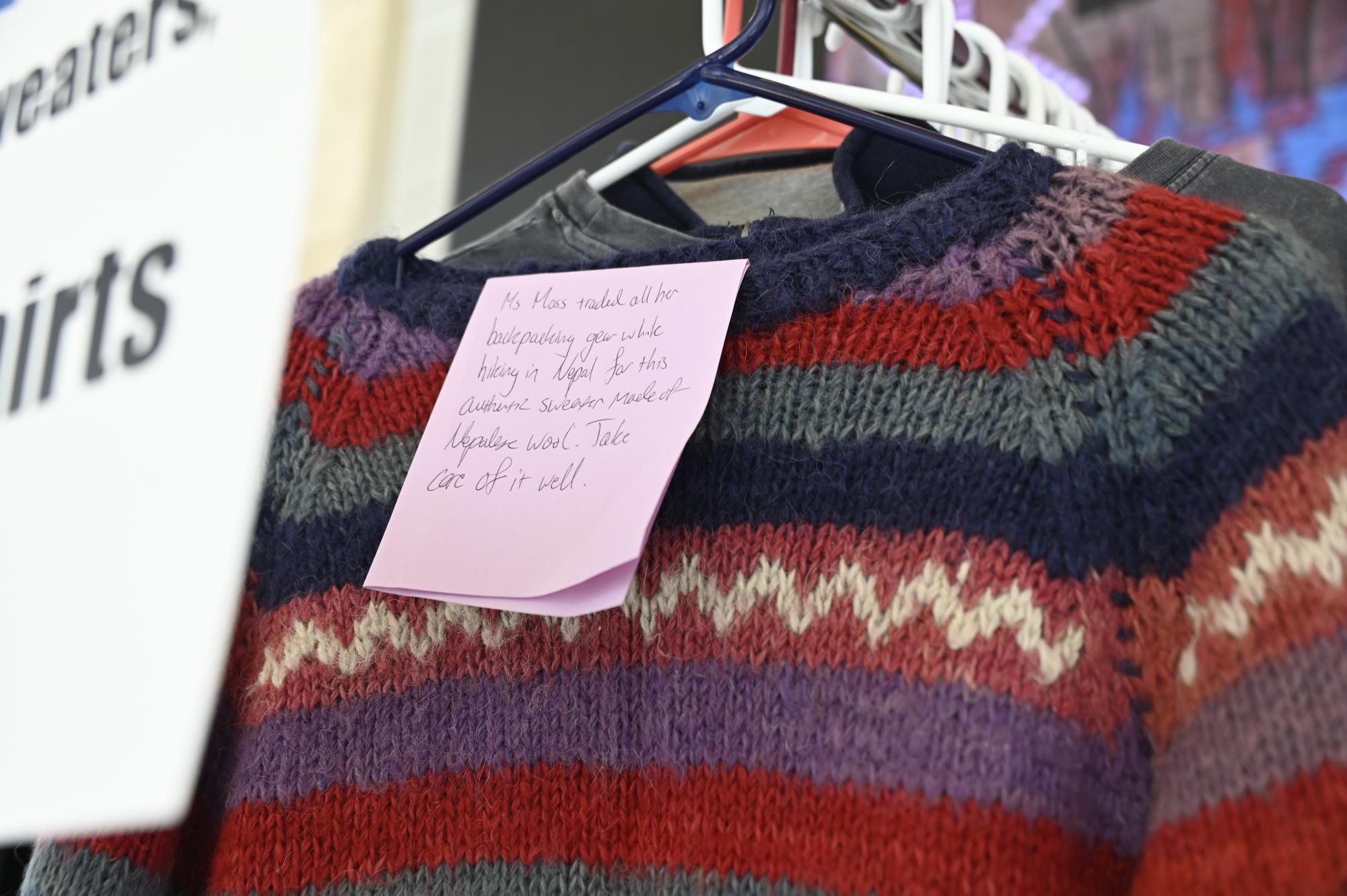
The variety of items, from old Harker gear to Nepalese wool sweaters, were collected from donation bins around campus. Clothing Swap visitor Avayna Glass (11) loved being able to find items they wouldn’t usually see while thrifting.
“I think the clothing swap is a really smart way for the Harker community to not only clean out their closets but also give back to the community,” Avayna said. “I think everyone has something to gain from it, and it brings a bit of awareness to sustainable shopping options like thrifting and hand-me-downs.”





